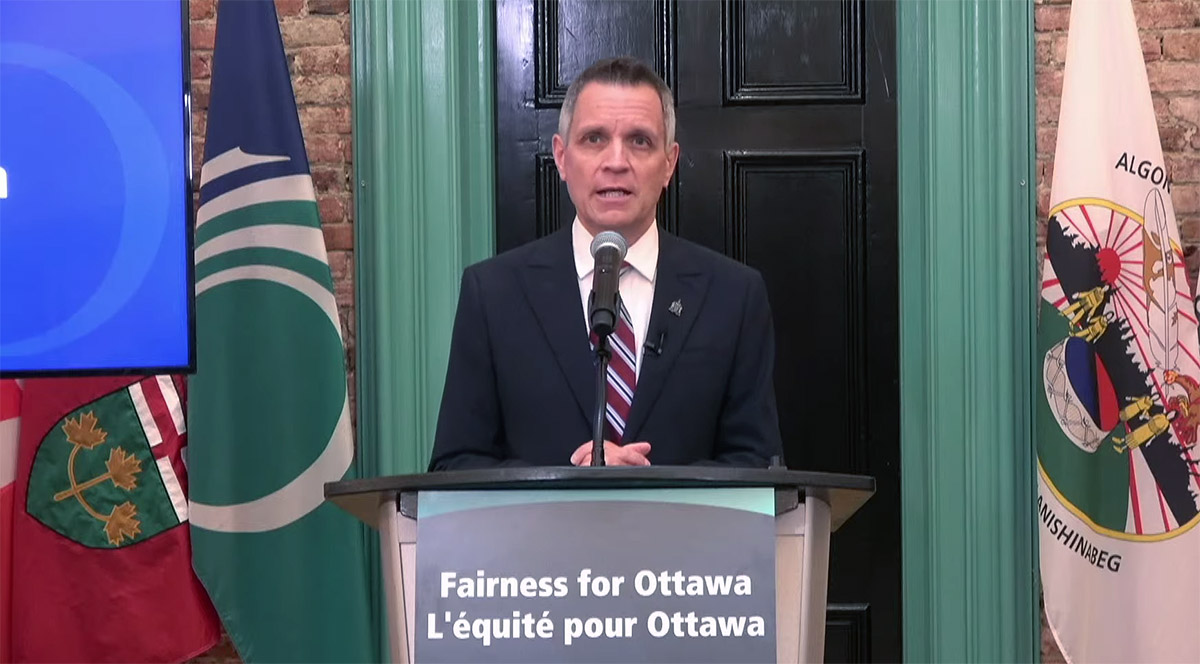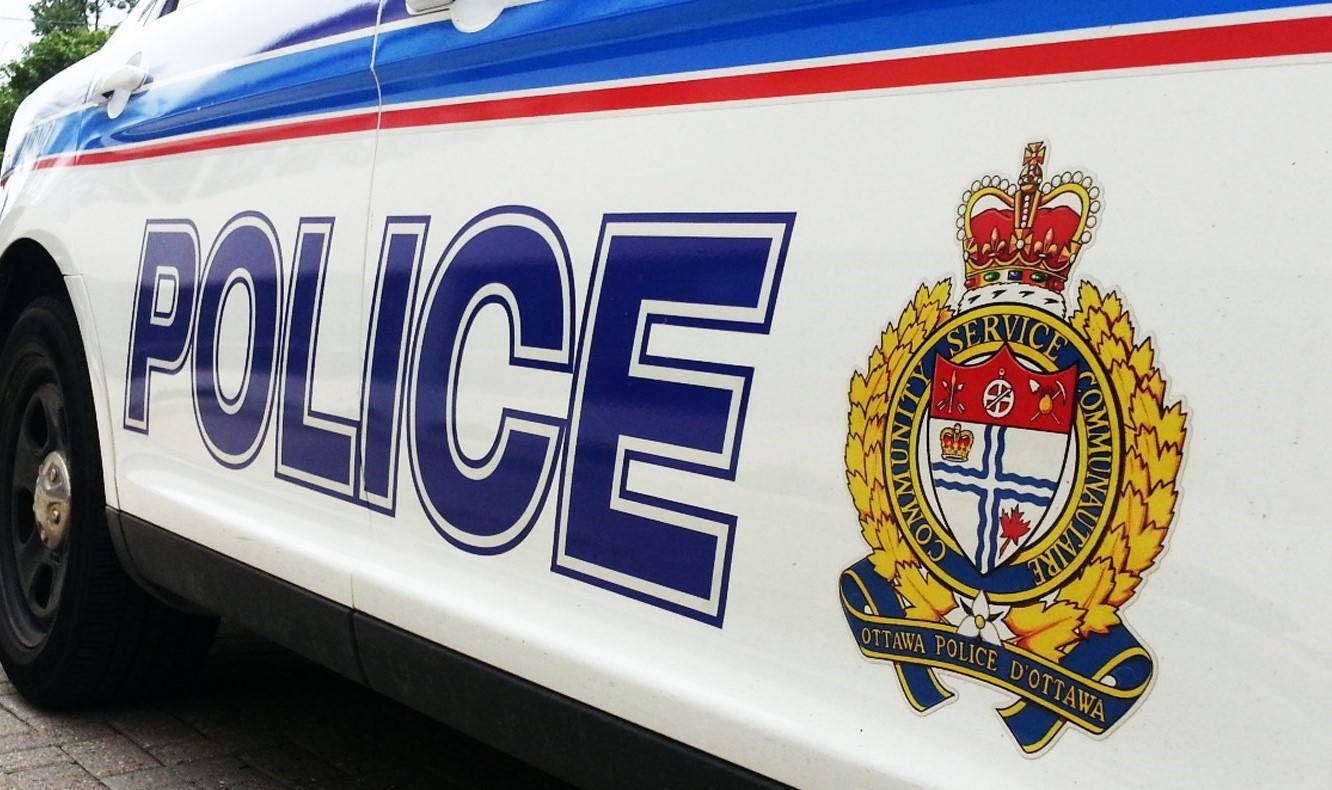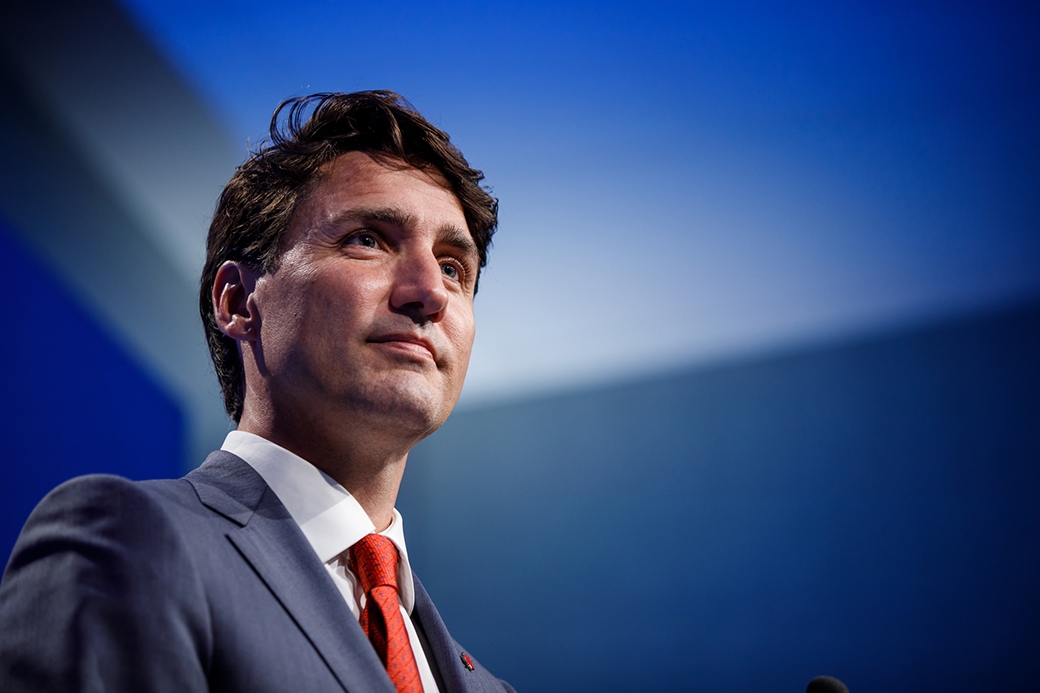
Mayor Sutcliffe Calls for Help from All Levels of Government to Ease Financial Crisis
Canadians are facing increased costs for essentials like gas, groceries, and rent. Today, Mayor Mark Sutcliffe called on Ottawa residents to support his campaign, urging the federal and provincial governments to contribute their fair share. Without this support, Ottawa could face a tax increase of at least seven percent.
The plea from the mayor comes days after the city called on citizens for public input as they created the draft budget for 2025.
During a morning press conference, Mayor Sutcliffe expressed that Council has been managing the city budget “very carefully” and has exhausted all efforts to raise the issue of “Fairness for Ottawa” with other levels of government.
The mayor said that during the 2024 City of Ottawa budget process, $153 million in savings and efficiencies were found without cutting services, but he said the same would not be possible for 2025. Mayor Sutcliffe explained that the federal government and its agencies—explicitly referencing the National Capital Commission—are not paying their fair share.
Between Payments in Lieu of Taxes (PILTS), an honour-based system of compensating the city for federal use of buildings and land, and overcharging the city for easement of Crown lands, the city is being unfairly burdened by the area’s largest employer.
In addition, the NCC, which owns and rents space in many buildings in downtown Ottawa, arbitrarily decides how much tax on rental income it pays to the city but then turns around and charges the highest rates, above market value, for land easement —they charged the city $52.6 million for a piece of land at LeBreton Flats to facilitate construction of the LRT.
Sutcliffe explained that historically, the city does not bill the federal government. Instead, they decide how much they pay. The problem is that they are paying much less than the market value and have randomly begun reducing the amount of PILTS they pay. The city has received $164 million for the last few years, down from the previous $194 million. The big problem for the city, which is not allowed to run a deficit, is that it must budget in advance for every dollar spent, and they have no recourse with the feds.
Adding to the problem for the city of Ottawa is that revenues will continue to decrease as the federal government reduces its footprint in the national capital. If things go according to plan, it will occupy 50 percent less office space, but Mayor Sutcliffe worries that this will exacerbate the transfer of funds to city coffers since the federal government operates at a snails’ pace. He is concerned that buildings may stand empty for a decade before anything is done with them.
In addition to PILTS payments and easement costs, the mayor says the city is in a financial crisis due to the cost of operating OC Transpo. He stated, “If we don’t get the help we need, it won’t even make financial sense to open Phase 2 of Light Rail.”
The crust of the problem is ridership, specifically by commuters travelling into the city for work. The mayor stated that the numbers are down by 38 percent, an annual loss of $39 million. Although he does not advocate for workers to return to the office, he stated that the system was built for this and is “asking the federal government to acknowledge the impact of their decision on our city”.
The mayor also stated that the citizens of Ottawa are being unfairly burdened with the capital cost of building the LRT, a reality not faced by residents of Toronto, Mississauga, or Brampton, who all benefit from fully provincially funded LRT builds. Ironically, these systems are being provincial-funded by provincial taxes collected from Ottawa residents. He advocates, at a minimum, for a return to the tripartite cost-sharing arrangement: federal, provincial, and city.
The mayor says because they do not pay their fair share, “the federal government have shifted an enormous burden from itself to you, the local taxpayer.” This means that Ottawa residents have to pay more for police, fire, paramedics, transit, infrastructure, roads, and everything because the federal government is not paying enough.
As the capital of Canada, Mayor Sutcliffe says, “The federal government has an obligation, an obligation to the city of Ottawa, an obligation to the nation’s capital.”
The Mayor said the city is in an unprecedented financial crisis. He called on all MPs and MPPs to “Do the right thing to help the people we were all elected to serve”. He is also looking for help from residents, asking them to petition their representatives from all levels of government directly for “Fairness for Ottawa”.
If the mayor’s pleas for fairness fall on deaf ears, Ottawa will bear the cost via higher property taxes.









